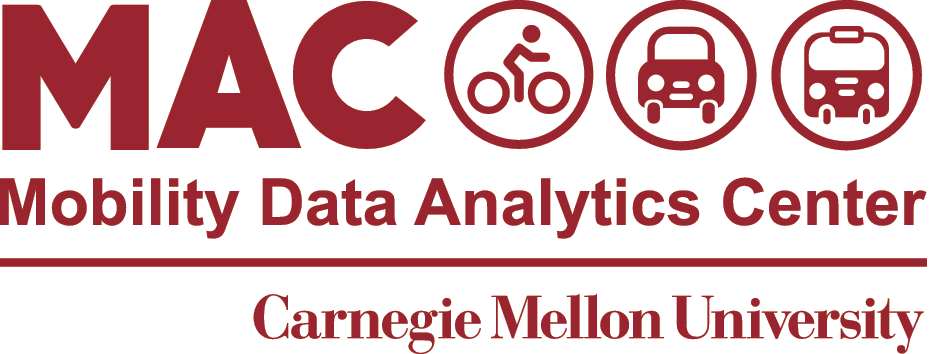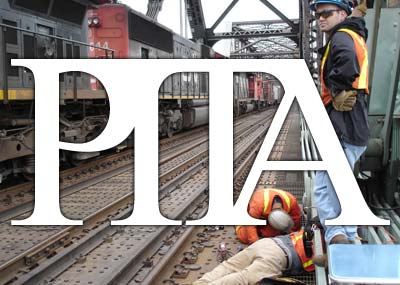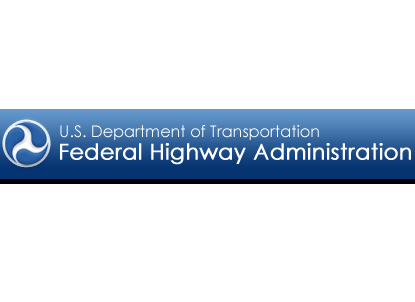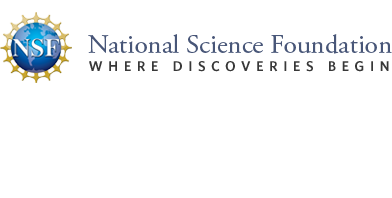mac news
- Aug 2020: Zemian Ke joined MAC as a new PhD student in CEE.
- Aug 2020: Jiachao Liu joined MAC as a new PhD student in CEE.
- Jul 2020: Dr. Wei Ma joined the Hong Kong Polytechnic University (PolyU) as an Assistant Professor. May success be with him always!
- Mar 2020: Dr. Bin Gui joined MAC as a postdoctoral researcher.
- Jan 2020: MAC research group presented 11 papers at 2020 Transportation Research Board Annual Meeting in Washington D.C.
- Jan 2020: Rick Grahn won “Best in Session” award in poster session of Standing Committee on Public Transportation Planning and Development at 2020 TRB annual Meeting in Washington D.C.
- Jan 2020: Matt Battifarano was honored as a “Student of the Year” at the Council of University Transportation Centers awards banquet held during the Transportation Research Board Annual Meeting in Washington, DC.
- Sep 2019: MAC released a white paper: High-Resolution Traffic Sensing with Autonomous Vehicles.
- Aug 2019: Radhika Katti joined MAC as a new PhD student in CEE.
- Aug 2019: Pablo Guarda joined MAC as a new PhD student in CEE.
- Aug 2019: Dr. Wei Ma joined MAC as a postdoctoral researcher.
- Aug 2019: Dr. Wei Ma, Dr. Xidong Pi, Dr. Pinchao Zhang and Dr. Shuguan Yang graduated from CEE’s AIS PhD program. May success be with them always!
- Aug 2019: Dr. Corey Harper joined MAC as a postdoctoral researcher.
- Feb 2019: Pengji Zhang and Arnav Choudhry joined MAC as new PhD students starting from Spring 2019. They are advised by Prof. Sean Qian.
- Aug 2018: Leo Huang Joined MAC as a new research MS student.
- Mar 2018: Prof. Sean Qian received an NSF CAREER award.
- Feb 2018: Rick Grahn joined MAC as a new PhD student in CEE, starting from Spring 2018. He is co-advised with Prof. Scott Matthews.
- Jan 2018: Dr. Yiming Gu and Prof. Sean Qian‘s paper, Traffic State Estimation for Urban Road Networks Using A Link Queue Model, was awarded the 2017 Greenshields Prize for both presentation and publication through the TRB Traffic Flow Committee.
- Jan 2018: MAC research group presented 7 papers at 2018 Transportation Research Board Annual Meeting in Washington D.C.
- Oct 13th 2017: Prof. R. Jayakrishnan visited CMU and gave a talk on “User-driven Service Order Adjustments for Efficiency in Collaborative Consumption of Transportation Supply”.
- Sep 2017: Weiran Yao joined MAC as a new Ph.D student in CEE, starting from fall 2017.
- Jun 2017: Matthew Battifarano joined MAC as a new Ph.D student in CEE, starting from fall 2017.
- Apr 15th 2017: At the CEE AIS seminar, Dr. Yafeng Yin delivered a talk: “Modeling and analysis of dynamic pricing of ride-souring services”.
- Jan 27th 2017: At the CEE AIS seminar, Dr. Mark Magalotti delivered a talk: “Freeway Ramp Management, Developing Planning Criteria and Performance Measures”.
- Jan 8th 2017: MAC members attended TRB 96th Annual Meeting. Eight papers were presented.
- Dec 2016: MAC welcomes two new undergrad interns: Zach Sussman and Juncheng Zhan, both from the School of Computer Science.
- Dec 18th 2016: FHWA project: Travel time reliability data guideline started.
- Jan 2016: College of Engineering Feature Stories of 2015: Predicting human behavior to improve transportation systems.
- Nov 20th 2015: Dr. Yanfeng Ouyang visited Heinz college and Mobility data Analytics Center. He delivered a talk on enhancing service facility reliability in the face of likely disruptions.
- Nov 12th 2015: Sean attended the 2015 Traffic21/T-SET UTC Symposium, and showcased the progress of Mobility data Analytics Center along with Xidong and Shuguan.
- Oct 2015: MAC is working with the City of Pittsburgh on monitoring, predicting and managing traffic impacted by the Greenfield Bridge closure.
- Oct 1st 2015: Philadelphia network analysis project started.
- Sep 16th 2015: NSF parking project started.
research
Education
MAC trains the next generation of civil engineers and decision makers. We work with undergraduate and graduate students, and collaborate with Carnegie Museum of Natural History on various STEM events and educational tool development for K-12 students.
CAPSTONE PROJECTS
- Team: Ngani Ndimbie, Xu Han, Zhi Wang, Shuaijun Ye, Chen Wei, Fei Wang
- Advisor: Sean Qian
- Final report [.PDF]
- Team: Manikandan Palani, Nisha Rao, Sahil Aggarwal, Yifei Jiang, Yun Fu
- Advisor: Sean Qian
- Final report [.PDF]
Broader impact projects
Carnegie Museum of Natural History educators are designing simple models and games to illustrate the science and impact of Dr. Qian’s research on sensing driven parking. Museum educators developed a hands-on activity called Jurassic Parking which uses model money and colored spheres to represent carbon emissions. Players work through scenarios to show how data influences their choices. User testing to refine the model took place in the museum. Visitors provide feedback on what elements they enjoy and what they would change.
ABOUT MAC
Over the last decade, new technologies and innovations in transportation systems have produced massive amounts of data, which has enabled us to better monitor, evaluate and manage our transportation systems. The rich data from various sources provides an unprecedented opportunity for the transportation industry to understand travel behavior and to propose efficient management strategies. However, those data sources are usually established by disparate public agencies and private companies. They rarely communicate with each other and as a result, data is only used and analyzed for a particular piece of the transportation system, such as an intersection, a stretch of freeway or bus operated by the same agency. With disparate data sources, each part of the system is individually operated and clearly, the entire transportation system is far from being socially optimal.
The Mobility Data Analytics Center (MAC) aims to collect, integrate and learn from the massive amounts of mobility data and contribute to the development of smarter multi-modal multi-jurisdictional transportations systems. The ultimate objective of MAC is to:
- Provide archived and real-time traffic data of every element of multi-modal transportation systems;
- Reveal the behavior information for both passenger transportation and freight transportation;
- Serve as a key instrument for managing transportation systems.
- Target a range of users including legislators, transportation planners, engineers, researchers, travelers and private companies.
MAC is developing a centralized data engine supported by a web application to manage and analyze massive data. The data engine essentially sets protocols for data exchange from various sources and is necessary to accommodate the needs of data fusion and analytics. The engine offers organization, visualization, and analytics of a wide array of mobility data, roadway, incidents, parking, public transit, weather, electric vehicles, mobile, etc. Furthermore, the engine can translate the data into useful information for people who need it: legislators, transportation planners, engineers, researchers, travelers, and companies. Unlike the traditional single computer stand-alone software or tools for data preparation and decision making, the data engine is accessed by users through web-based data sharing and browser-based human-computer interaction. The web application visualizing data and recommending decisions serves the front end of the data engine. We are now working with various deployment partners to conduct research on mobility data analytics, and to develop decision-making tools for facilitating transportation system management. We also work with private sector to develop travel-related products or service that ultimately improves travelers’ experience.
People
Current members
Alumni
Contact us
Director: Sean Qian
Hamburg Hall 3044, Carnegie Mellon University
4800 Forbes Ave, Pittsburgh, PA, 15213
Email: seanqian@cmu.edu






































